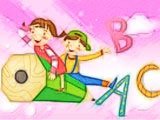We use “both when we speak about two things or two people. Here are two pencils. Both are red. Both these books are interesting.
Do you both speak and write English? Are there shops on both sides of the street where you live? Etc. central a (контекст, догадка)
(контекст, догадка)
A central thing is always at the centre or near the centre. The central part of the city has a lot of places of interest.
What is the central city of the area in which you live? What is I the name of the central square in your town? Etc. main a (контекст, перевод)
The main thing is the most important thing. Leningrad is one of the main cities in the Soviet Union.
What is the main street of your town? What is the main city of
England? Etc.
n (наглядность, догадка)
There is a monument to Lenin in the centre of our town. There are many monuments in Moscow.
What monuments are there in your town? What other monuments to great people have you seen? Etc.
I palace n (наглядность, перевод)
A palace is a large fine house. There are many Young Pioneer
Palaces in the Soviet Union.
I Have you visited old palaces? Is there a palace in vour town (district)?
| sight n (контекст, перевод)
n (толкование, перевод)
Sightseeing is visiting places of interest. When you go you go around looking at places of interest.
Do you like to go sightseeing? Where did you go sightseeing t. time? What can you show people from other places if they go sight* seeing in your town? Etc. underground n (толкование, догадка, перевод)
The underground is an underground railway. Moscow underground I railways are known in all countries of the world.
Have you seen the Moscow underground? What underground si* j tion did you like best of all? Etc.
